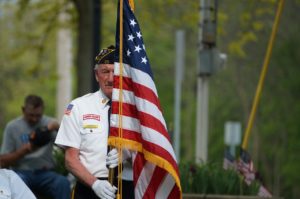POSTED IN: Long-Term Care, Veterans Benefits
TAGS: Assisted Living, VA aid and attendance, Veterans Benefits
Share this
Each year, November is designated as National Veterans and Military Families Month. Today, we would like to say thank you to all the men and women who have and are serving our nation.
It is an honor to work with so many veterans. Thank you for your service!
Over the years, we have worked for Veterans of World War I, World War II, Korean War, and Vietnam War. We never stop being amazed by the service they have provided to our country. We are also constantly amazed by the number of veterans who do not understand their rights to getting VA Benefits.
Many veterans assume they do not qualify for any benefits from the VA.
Phone calls from concerned family members often reveal that their loved one never used the VA after his discharge from military service. They never even thought about it—they just did their service and moved on. That time in service, though, may qualify them for extra benefits from the VA.
The Aid and Attendance Benefit continues to be one of the best kept secrets at the VA.
Despite the information available on this Special Pension, many still misunderstand their rights to getting the Aid and Attendance benefit You can learn more about the basics of VA Aid and Attendance benefits here.
Many have been told that they make “too much money for VA benefits.”
The VA does require that you make less than the maximum benefit in order to qualify for VA benefits. So, if the maximum monthly benefit for a married veteran in 2019 is $2,230 and the couple makes $3,500 in monthly income, many might believe that the couple is not eligible for VA benefits based on their income.
The VA, however looks at “Income for VA Purposes,” not gross income.
In order to qualify for VA Pension with Aid and Attendance, a veteran (or surviving spouse) must prove that he/she is in danger of outliving their money if they continue to have to pay for long- term care. One way of proving this is to show that the veteran (or surviving spouse) is spending more on care than they make in income. Thus, the VA does not simply consider gross income.
The VA calculates IVAP as gross income minus the recurring, unreimbursed medical expenses.
This is “Income for VA Purposes.” If the income for VA Purposes is less than the maximum benefit ($2,230/month for a married couple, $1,881/month for a single veteran, and $1,209 for a surviving spouse), the veteran or surviving spouse is eligible for Aid and Attendance from an income standpoint.
Not understanding this calculation is the number one mistake most make about the VA Aid and Attendance Benefit.
Let’s look at an example. Mr. Johns makes $4,300 in monthly income. His income is above the VA Pension with Aid and Attendance benefit that he is eligible for ($1,881/month), so it may appear that he does not qualify for the benefit. Mr. Johns, however, is living in an assisted living community that costs $3,800/month, pays for medications at about $200/month, pays a health insurance premium of $170/month, and buys incontinent supplies for about $180/month. His expenses total $4,350/month. Although his gross income is $4,300/month, his income for VA purposes is in the negative, which the VA rounds up to $0. This means that Mr. Johns is eligible for the full benefit of $1,881/month (at least from an income standpoint).
The VA also has asset limits and a lookback period.
Once we can determine that a veteran or surviving spouse is eligible for benefits based on their income, we also have to look at their assets. The VA set the asset limit at $127,061 for eligibility. This amount includes retirement assets, but excludes a home and a vehicle. If a veteran’s assets exceed the current VA limits, there are asset planning options that can help you qualify. Be warned, though, the VA also implemented a 36-month look-back period.
Consulting with a Certified Elder Law Attorney can help you determine the best way to qualify, given your circumstances.
These requirements can seem confusing to families who need extra income to pay for care and have been told they have too much money to qualify. The Certified Elder Law Attorneys at Hurley Elder Care Law can devise a strategy to allow veterans or a surviving spouse to qualify for the benefit. To access our complimentary phone consultation, please contact our office at (404) 843-0121 or through our website at https://hurleyeclaw.com/contacts/
Share this
Subscribe to our blog and monthly newsletter.











